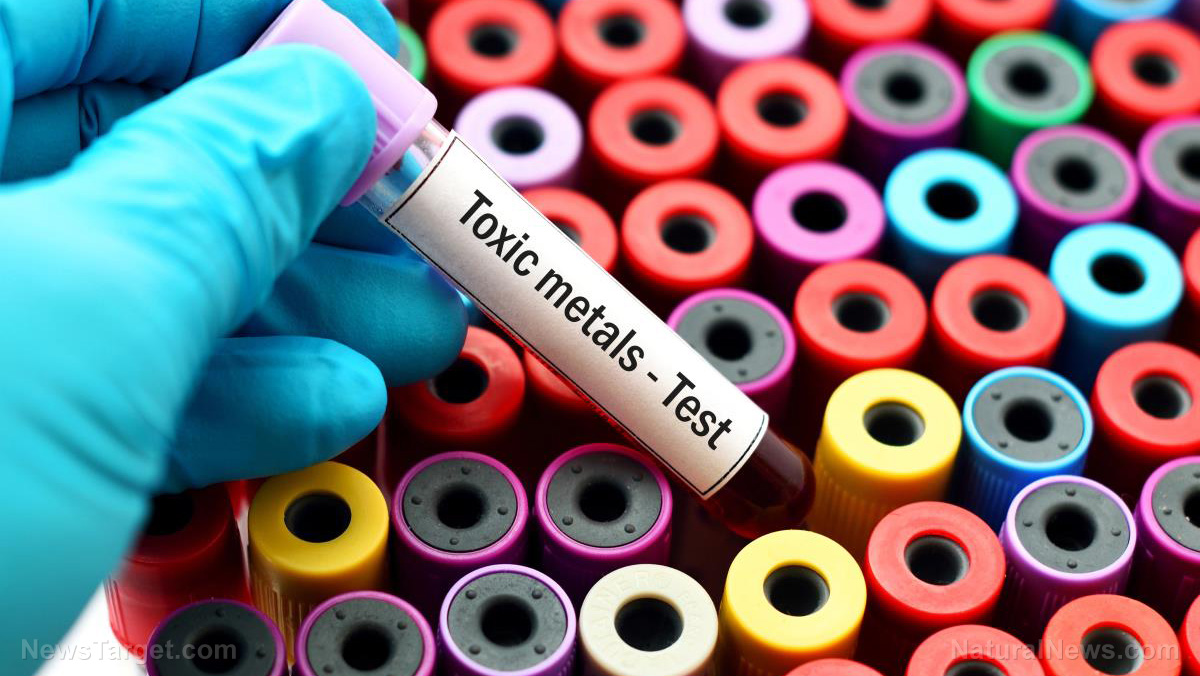Lowering homocysteine levels can decrease risk of heart attack, stroke and Alzheimer’s
02/05/2021 / By Virgilio Marin

Homocysteine is an amino acid produced when proteins are broken down. High homocysteine levels, called hyperhomocysteinemia, are known to increase disease risk. As a case in point, the condition is linked to heart attack, stroke and Alzheimer’s disease.
High homocysteine levels and cardiovascular disease
Previous research has found that homocysteine can damage the endothelium, the tissue lining the blood vessels throughout the body. Injuries in the endothelium can accumulate and lead to atherosclerosis, or the formation of plaques in the blood vessels.
In turn, plaque buildup can partially or completely block blood flow in the arteries in the heart or brain, leading to a heart attack or stroke, respectively. For this reason, high homocysteine levels are considered a risk factor for atherosclerosis and its complications, such as coronary artery disease (CAD). CAD occurs when plaque builds up in the arteries that supply blood to the heart. It can cause chest pain, heart attack and heart failure.
In a study of more than 3,000 patients with chronic heart disease, researchers found that high homocysteine levels were associated with 2.5 times higher risk of coronary events, or adverse events caused by disease processes affecting the coronary arteries. Moreover, each 5 micromoles per liter increase in homocysteine raised the risk of coronary events by 25 percent.
Poor endothelial function brought by high homocysteine levels can also cause the following health problems:
- Reduced ability to create “detours” around a blocked vessel. This “collateral circulation” is usually activated as a back-up when coronary arteries narrow.
- Reduced ability to counteract abnormal clotting in an artery, which can increase the risk of acute heart attack and stroke.
- Increased arterial stiffness, which contributes to coronary artery disease and stroke
High homocysteine levels and Alzheimer’s disease
Research has also linked high homocysteine levels to Alzheimer’s. In a study supported by the National Institutes of Health‘s National Institute on Aging, researchers found that people with elevated homocysteine levels in the blood had nearly double the risk of developing Alzheimer’s.
Meanwhile, a 2019 study found a link between elevated homocysteine levels and conditions associated with Alzheimer’s, including delusion, agitation/aggression and depression. In a 2018 study, researchers classified elevated homocysteine levels as a modifiable risk factor for cognitive decline, dementia and Alzheimer’s disease in older people.
According to experts, homocysteine speeds up brain aging by promoting the following processes:
- Development of neurofibrillary tangles and beta-amyloid plaques, both of which trigger cell death and contribute to Alzheimer’s
- Chronic inflammatory reactions
- Shrinkage of areas of the brain, such as the hippocampus, which is involved in memory formation
- Formation of plaque
- Inability to repair DNA for brain cell maintenance
These findings suggest that it’s just as important to pay attention to your homocysteine levels as your blood pressure or cholesterol levels. Your healthcare provider can perform a simple blood test to measure the amount of homocysteine in your blood. Normal levels are below 15 mcmol/L.
If your homocysteine levels are above normal, consider checking if you’re deficient in vitamin B6, vitamin B9 and vitamin B12. These B-complex vitamins are known to be involved in breaking down homocysteine in the blood. In fact, a study found that depriving mice of these vitamins for eight months was linked to elevated levels of homocysteine and a 50 percent increase in neurofibrillary tangles in the brain. (Related: Understanding how B vitamins help improve brain, heart health.)
Experts also recommend eating a diet rich in fruits, vegetables and grains. Leafy greens, lentils and cereals are rich in folate, one of the forms of vitamin B9. Meanwhile, foods rich in vitamin B6 include potatoes, bananas and chickpeas. Foods rich in vitamin B12 include dairy products and organ meat.
Medical conditions like stroke, heart attack and Alzheimer’s can reduce your quality of life. Though some risk factors are out of your control, lowering your homocysteine levels is something you can do. Incorporate the foods mentioned above into your diet to better manage your homocysteine levels.
Sources include:
Tagged Under: Alzheimer's disease, atherosclerosis, brain health, coronary artery disease, heart disease, heart health, homocysteine, longevity, nutrients, prevention, stroke, Vitamin B
RECENT NEWS & ARTICLES
Dementia.News is a fact-based public education website published by Dementia News Features, LLC.
All content copyright © 2018 by Dementia News Features, LLC.
Contact Us with Tips or Corrections
All trademarks, registered trademarks and servicemarks mentioned on this site are the property of their respective owners.





















